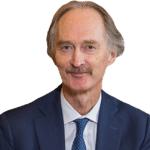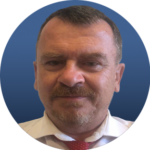MED Conversations

Geir O. Pedersen
Special Envoy of the Secretary-General for Syria, United Nations

Stefano Ravagnan
Special Envoy for Syria, Ministry of Foreign Affairs and International Cooperation, Italy

Dareen Khalifa
Senior Analyst, International Crisis Group
Ten years after the outbreak of the civil war, a political solution for the Syrian conflict appears to still be far away. In October, the drafting process of the Constitutional Committee stalled due to a lack of consensus between government and opposition representatives. The outcomes of these talks come at a time where violence has been revived in the country. Besides the turbulence witnessed in the Dara’a district last summer, hostilities have also been recorded in Idlib and the rest of northern Syria, further aggravating the dire humanitarian situation of the region. At the same time, the past few months have seen some relevant developments regarding the process of Syria’s reintegration into the Arab fold. Damascus took part in the negotiations on the Lebanese energy crisis, and regional leaders have resumed their communication channels with the Syrian government. In this context, renewed international efforts seem to remain the only viable option for a political solution to the Syrian conflict. Against this backdrop, what steps could be taken to build the trust and confidence necessary to revive the Syrian Constitutional process and push for a political solution for the conflict? In what way have the latest steps towards the reintegration of Damascus into the Arab fold influenced the prospects of a political solution for Syria? And what further measures could be taken to alleviate Syria’s humanitarian crisis and foster vaccination efforts in the country?